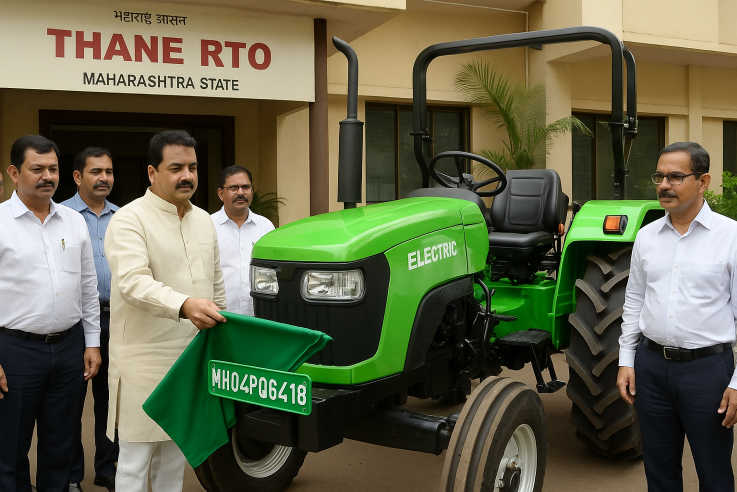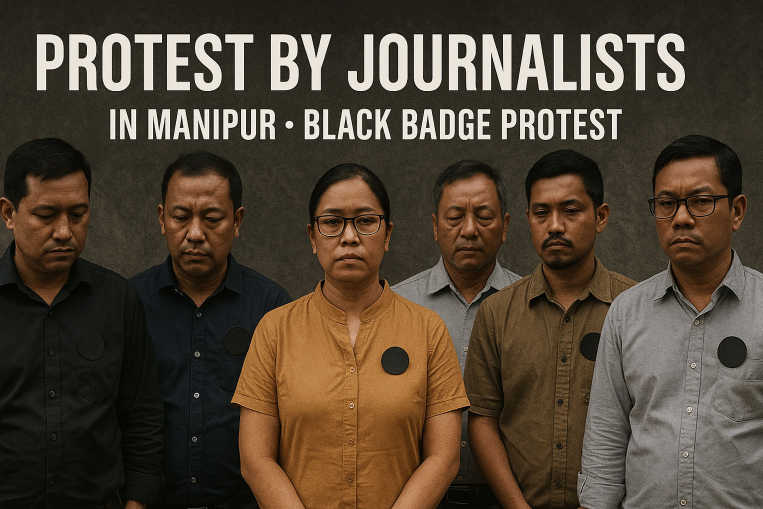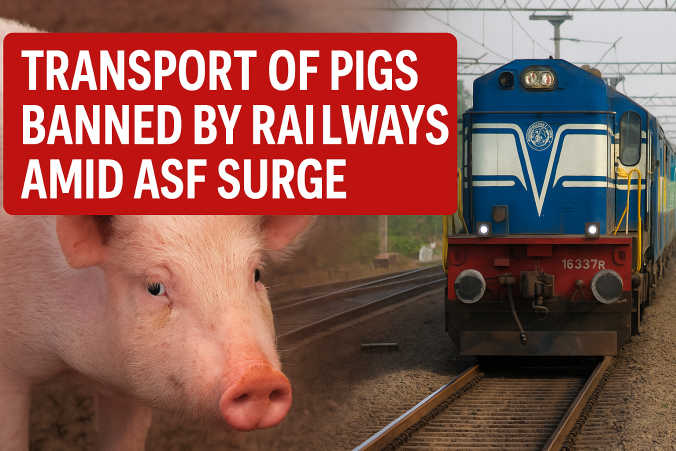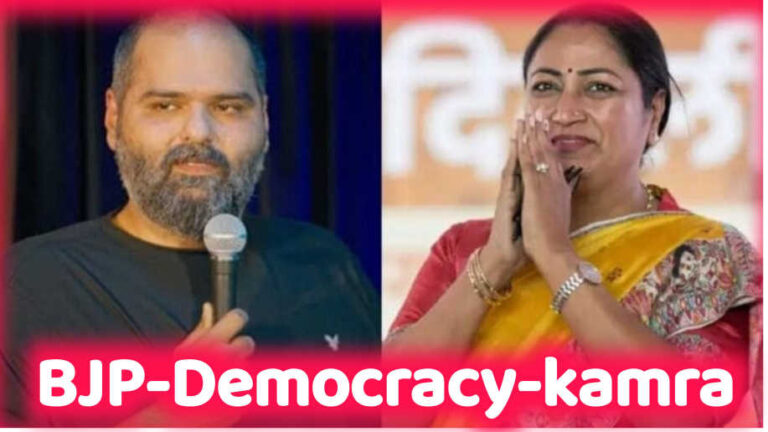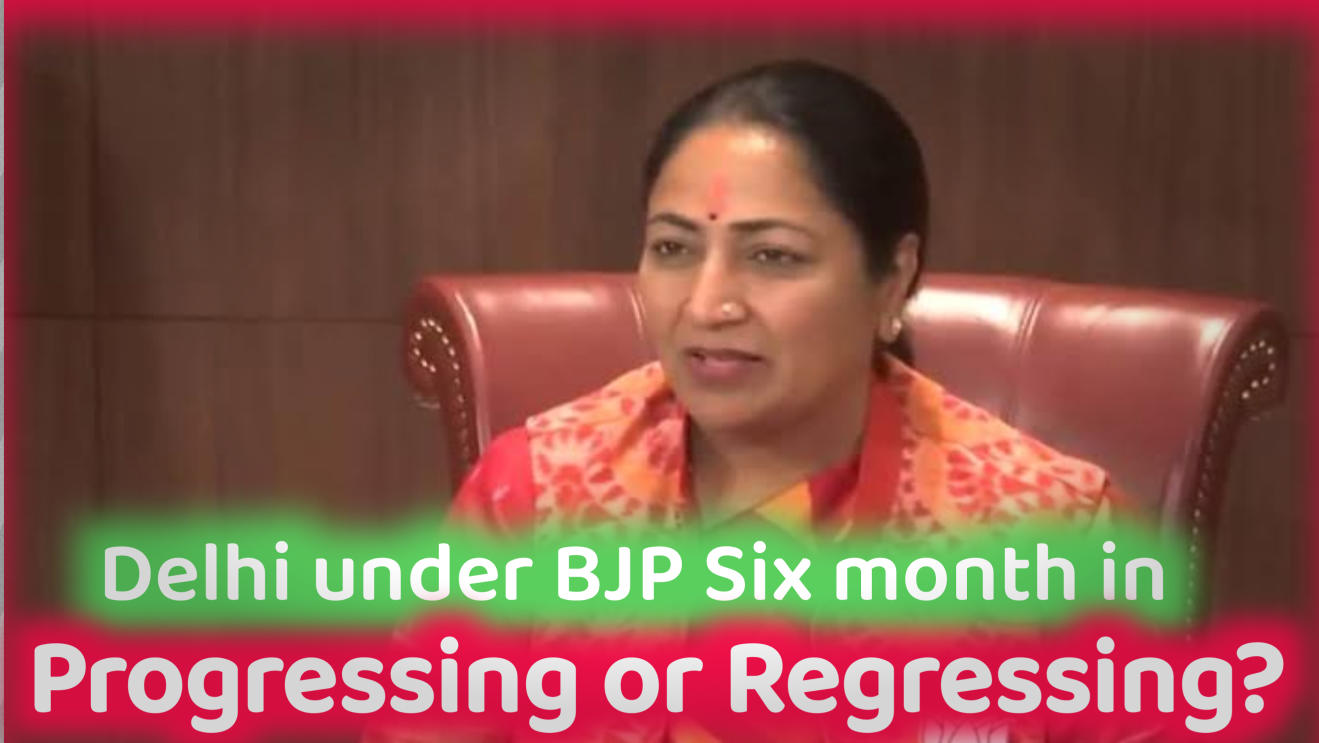
Delhi’s first six months under the BJP government have sparked debate. From power cuts and water scarcity to education fee hikes and pollution bans—what’s really happening in the capital? A closer, ground-level look.
Six Months Under the BJP
The clock has ticked six months since the Bharatiya Janata Party took charge in Delhi, and while the party entered with promises of reform and restoration, the lived experience of Delhiites tells a more complicated story. From unpredictable power supply to unsettling changes in the education and health sectors, the capital stands at a curious crossroads—between hope and hardship, progress and pause.
⚡ Lights Out: The Unwelcome Return of Power Cuts
It’s June, the heat is unrelenting, and yet several localities in Delhi are experiencing regular power cuts—something many residents had left behind years ago. In areas like Narela, Shahdara, and parts of West Delhi, daily electricity blackouts have returned with a vengeance.
While the Power Minister pinned the blame on a “massive debt left by the previous administration,” that explanation has done little to comfort frustrated families sweating through the summer nights. What has further stung citizens is the 7–10% hike in electricity tariffs. For many, the dual blow of higher charges and poorer service feels not only unjust but avoidable.
Interestingly, no solid timeline has been offered for improvement. And though internal restructuring in the discoms is said to be “underway,” no detailed plans have been made public.
💧 Water Crisis: A Basic Right Going Dry
Power woes aside, Delhi’s most urgent concern today may be something even more essential: water. In multiple colonies, taps have remained dry for days at a stretch. Tankers have become a lifeline, but also a source of chaos and crowding. In places like Sangam Vihar and parts of East Delhi, water is becoming a luxury.
Residents allege that complaints are either ignored or responded to with generic promises. The situation has raised questions about whether the water board is being managed efficiently or merely responding reactively.
Some experts believe that the government underestimated the summer’s demand and overestimated the infrastructure’s capacity. Regardless, thousands are caught in the middle, waiting—for both water and accountability.
🏫 Education: Private School Fee Hikes Stir Public Rage
Soon after the BJP government took the reins, private schools across Delhi increased their fees, citing inflation and “operational needs.” For middle-class families already burdened by rising living costs, this move triggered a wave of protests.
Parents’ associations demanded government intervention, but action came slow. A bill aimed at regulating private school fees was introduced but then postponed without clear reasoning. Critics accuse the government of buckling under pressure from private institutions.
The education minister maintained that the bill needed “more legal refinement.” Meanwhile, admission deadlines passed and fee hikes remained intact.
🐄 Stray Cattle and Staged Cleanliness?
Stray cattle, especially in outer Delhi regions, have been wreaking havoc—blocking roads, causing accidents, and even entering homes. Yet, while the issue persists, photo ops of cleanliness drives and cow shelters dominate the headlines.
Opposition leaders and social commentators have called it “optics over outcome.” While awareness is essential, solutions remain elusive. The municipal bodies have made some token efforts, but on-ground relief is scarce.
This disconnect between image and impact is fast becoming a common criticism of the current administration.
🌫️ Pollution and Policy: Vehicle Bans Raise Eyebrows
Pollution remains a chronic enemy of Delhi’s health, but the BJP government’s proposed solution—blanket bans on petrol, diesel, and even new CNG vehicles—has sparked backlash.
Under current proposals, from August 2025, new two-wheelers running on fossil fuels will not be allowed in Delhi. Existing petrol and diesel vehicles may also face bans in certain zones.
While the intent to go green is commendable, critics say the plan lacks foresight. EVs are still expensive, charging stations are few and far between, and the infrastructure isn’t ready for such a rapid shift. For thousands of auto drivers, small traders, and delivery personnel, this decision could jeopardize livelihoods.
Many believe a phased, incentive-based approach would be wiser. But the government appears firm on its timeline—for now.
🏥 Healthcare Overhaul or Just a Name Change?
One of the more contentious decisions has been the rebranding of the iconic Mohalla Clinics to ‘Arogya Mandir.’ Not only has the name changed, but several existing staff have been removed, and new hires are being brought in.
This has raised eyebrows among healthcare workers and the public alike. Critics argue that the clinics—once celebrated for their accessibility and affordability—are being used as a canvas for political branding.
While the government insists this is part of a broader healthcare upgrade, data regarding improved services or better outcomes has yet to be presented. Former staff members claim they were let go without due process, and some clinics remain shut temporarily during the transition.
🧭 Where Does Delhi Go From Here?
The first six months of the BJP-led governance in Delhi have been anything but smooth. To some, the administration appears more focused on visuals and announcements than on grassroots change. To others, these hiccups are simply part of the teething problems every new government faces.
Still, for the common man—the one standing in line for water, juggling fee payments, or worried about losing a vehicle to new bans—these six months have felt less like a transition and more like turbulence.
People didn’t just vote for a change in leadership. They voted for better lives. If the government hopes to retain trust, it needs to move from statements to substance—urgently.
✍️ SUMMARY
Governance is judged not by slogans but by streetlights that stay on, water that flows, schools that remain affordable, roads that are safe, and policies that consider both ecology and economy. As Delhi moves forward, the demand is not for miracles—but for mindfulness.

